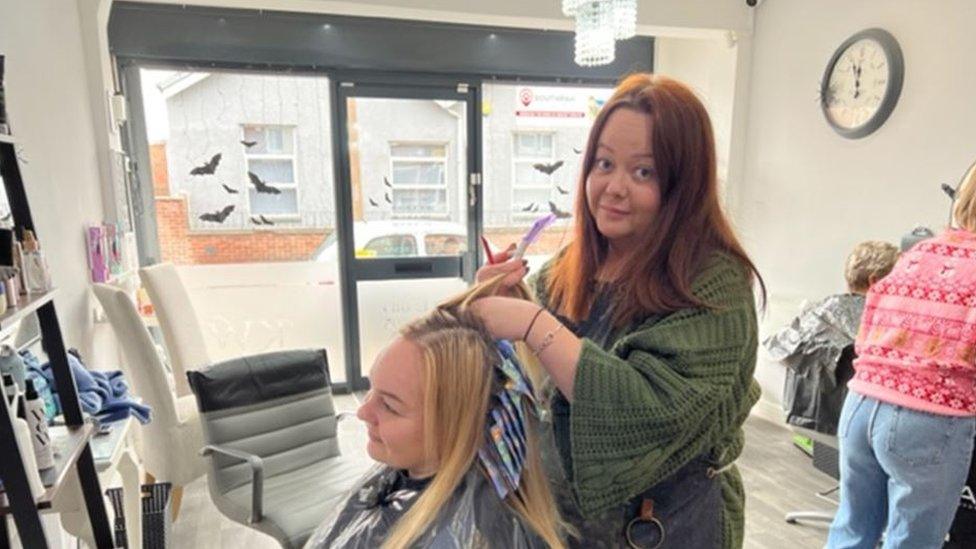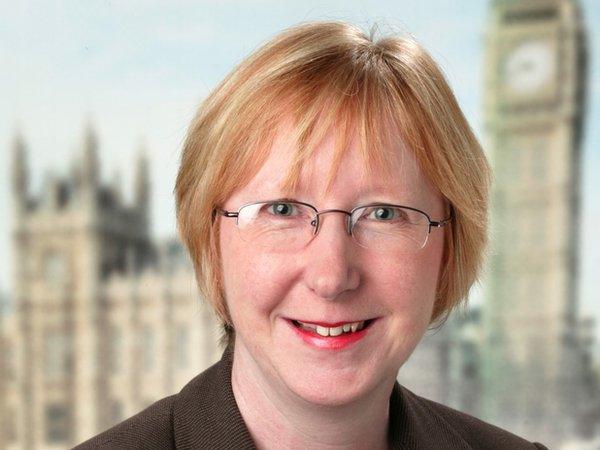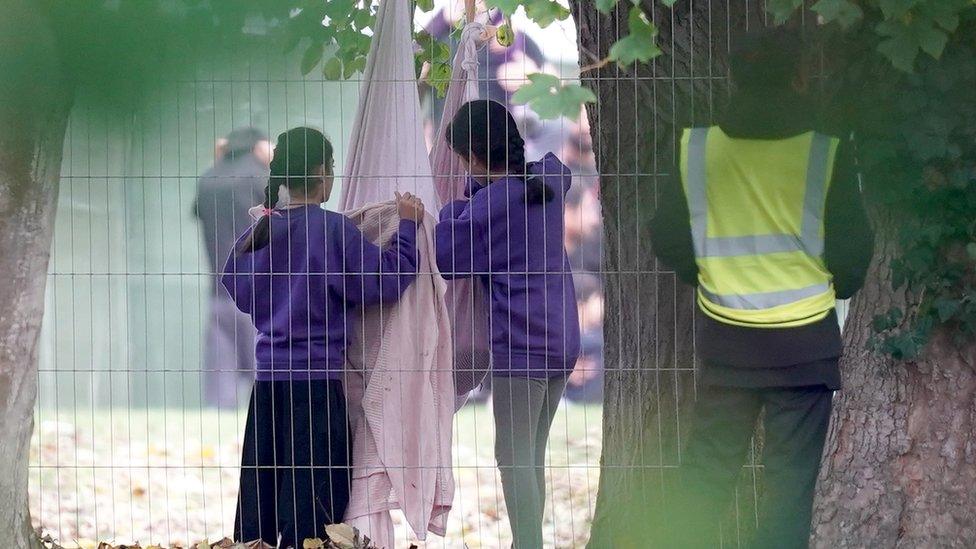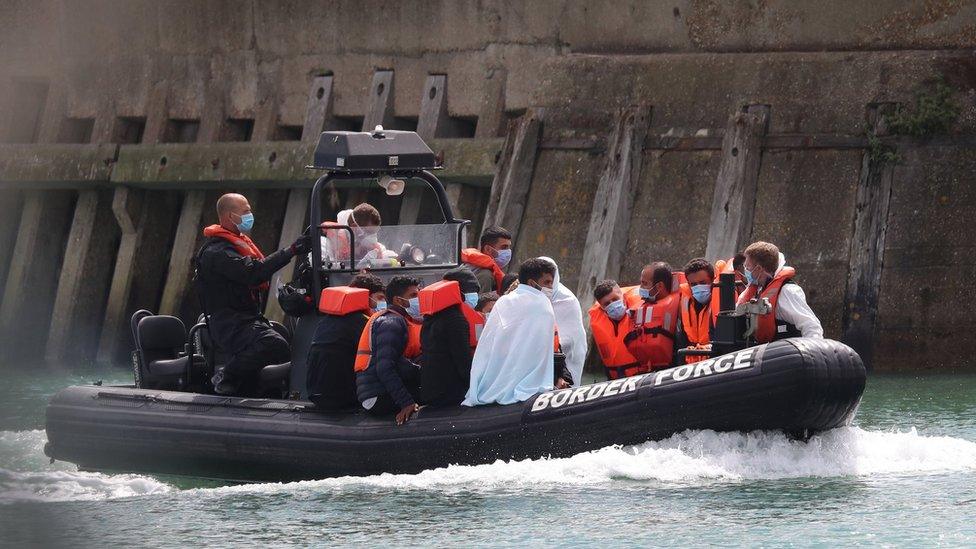Concerns raised over hotels housing asylum seekers
- Published

Two hotels in the Erewash area are housing roughly 400 asylum seekers
A council and its regional NHS service have written to the Home Office expressing "serious concerns" about two hotels housing asylum seekers.
The two hotels, in the Erewash area of Derbyshire, are housing roughly 400 asylum seekers.
Residents voiced concerns during a meeting on Wednesday.
Police said officers were working with the community to understand concerns but had not noted a significant increase in crime reporting.
Erewash Borough Council and Derbyshire NHS services penned letters to the government following the meeting.
'Pressures'
Council leader Carol Hart said the move would have a "detrimental impact" on services.
"This is likely to have a detrimental impact on the already-limited local and vital services in the community," she said.
"The accommodation… has been organised by the Government Home Office and their accommodation partners Serco, and not by Erewash Borough Council, though we are doing everything we can to help both the local community and the asylum seekers."
Meanwhile, NHS Derby and Derbyshire Integrated Care Board said while it was a "strong supporter of a fair and effective asylum system", it had concerns about the "pressures" 400 people would bring to the area.

Kelly Webb said the concerns were "nothing to do with racism"
More than 60 residents attended a parish council meeting to voice concerns.
Kelly Webb, who owns a hairdressers in the area, said she felt intimidated by a group staying at one of the hotels in the area who often passed by her premises.
"The doctors' surgeries are already over capacity," she said.
"It's nothing to do with racism, it's to do with protecting us."
However, Charli, who also lives in the area, hit out at the "mob mentality" on local social media pages and urged people to have "compassion".
"They're real people with lives and families they've [had to] leave behind to look for something better," she said.
"To be in that situation and to have people coming after you is awful."
'Utter shambles'
A man who attended the meeting - Mark - said he started getting concerned a few weeks ago when the second hotel was repurposed to house the asylum seekers.
"The main concern from the majority of people [at the meeting] was the safeguarding of local residents, particularly women and children. There are schools in the vicinity.
"It's the fact that there are many documented issues… also it's the knock-on effect also on local services, healthcare, schools."
The leader of the Labour group on Erewash Borough Council, James Dawson, said the situation was a symptom of a "broken" asylum system.
He said: "It does show the complete and utter shambles the Home Office are in at the moment.
"We've had three prime ministers and three home secretaries in the past few months which has confounded the problems."

Erewash MP Maggie Throup was among a number of MPs speaking at the Commons about the issue
Conservative former minister and Erewash MP Maggie Throup was among a number of MPs who asked the government why asylum seekers had been placed in hotel accommodation in their constituencies without prior notification from the Home Office.
In the Commons, former vaccines minister Ms Throup called for an urgent meeting with the home secretary to discuss the "immediate closure" of two asylum hotels in her area.
She said: "Had I been asked I would have opposed these accommodation centres due to the unacceptable pressures on the local services in my constituency."
Commons Leader Penny Mordaunt said she would write to ministers about the concerns, adding: "Sadly she is not alone, I think there are other colleagues as well who have similar experiences.
"Clearly, not being aware of what is happening is unhelpful, particularly as the local authority will need to prepare and have as much notice as possible for that happening."
A Home Office spokesperson said: "The number of people arriving in the UK who seek asylum and require accommodation has reached record levels, placing unprecedented pressures on the asylum system.
"While we accept that hotels do not provide a long-term solution, they do offer safe, secure and clean accommodation, and we are working hard with local authorities to find appropriate accommodation during this challenging time."

Follow BBC East Midlands on Facebook, external, on Twitter, external, or on Instagram, external. Send your story ideas to eastmidsnews@bbc.co.uk, external.
- Published2 November 2022

- Published30 October 2022

- Published26 October 2022
